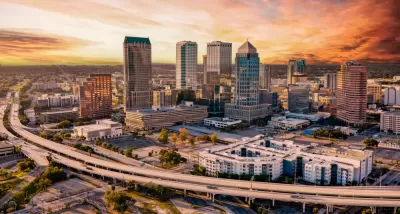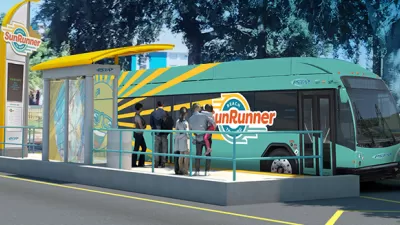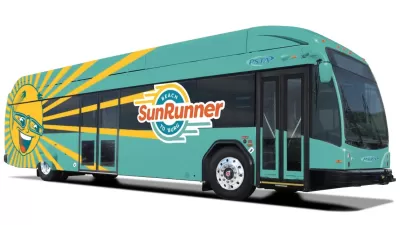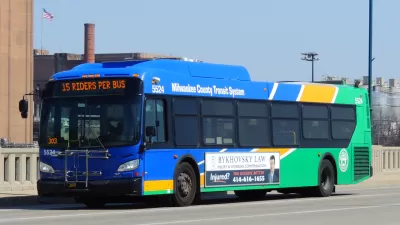The transit agency’s board voted to use all-electric buses in its planned bus rapid transit fleet, but criticism of plans to expand a freeway to accommodate the new route remain.

As reported by C.T. Bowen, “The governing board of the Tampa Bay Regional Transit Authority, known commonly by the acronym TBARTA, agreed Friday to use electric buses on the proposed transit system that is not expected to be operational until 2030.”
In prior plans, “The 41-mile route posed a challenge to running buses without a way to recharge while in service. The board agreed to a plan to install 11 charging stations at eight locations in addition to the 15 chargers needed at the overnight depot.” As Sen notes, “The earlier plan to use hybrid buses entailed 22 vehicles to run the four planned routes from State Road 54 in Pasco County to downtown Tampa and on to the city of St. Petersburg.”
Now, the agency has agreed to make all 29 buses electric. “The upfront spending on more expensive electric vehicles and charging stations will have other benefits. Calculations, compiled by a federal Transit Agency matrix, put annual environmental savings at $568,000 per electric bus, including better safety, reduced energy use and air quality benefits.”
While the agency is pushing ahead with plans to build the BRT route, “Opposition to the regional transit plan remains in Hillsborough County because of public reluctance to add additional lanes to Interstate 275 to accommodate the buses and added vehicle traffic.”
FULL STORY: Tampa Bay transit agency opts for all-electric buses on regional route

Study: Maui’s Plan to Convert Vacation Rentals to Long-Term Housing Could Cause Nearly $1 Billion Economic Loss
The plan would reduce visitor accommodation by 25,% resulting in 1,900 jobs lost.

North Texas Transit Leaders Tout Benefits of TOD for Growing Region
At a summit focused on transit-oriented development, policymakers discussed how North Texas’ expanded light rail system can serve as a tool for economic growth.

Using Old Oil and Gas Wells for Green Energy Storage
Penn State researchers have found that repurposing abandoned oil and gas wells for geothermal-assisted compressed-air energy storage can boost efficiency, reduce environmental risks, and support clean energy and job transitions.

Private Donations Propel Early Restoration of Palisades Playground
Los Angeles has secured over $1.3 million in private funding to restore the Pacific Palisades playground months ahead of schedule, creating a modern, accessible space that supports community healing after recent wildfires.

From Blight to Benefit: Early Results From California’s Equitable Cleanup Program
The Equitable Community Revitalization Grant (ECRG) program is reshaping brownfield redevelopment by prioritizing projects in low-income and environmental justice communities, emphasizing equity, transparency, and community benefits.

Planting Relief: Tackling Las Vegas Heat One Tree at a Time
Nevada Plants, a Las Vegas-based nonprofit, is combating the city’s extreme urban heat by giving away trees to residents in underserved neighborhoods, promoting shade, sustainability, and community health.
Urban Design for Planners 1: Software Tools
This six-course series explores essential urban design concepts using open source software and equips planners with the tools they need to participate fully in the urban design process.
Planning for Universal Design
Learn the tools for implementing Universal Design in planning regulations.
Ascent Environmental
Borough of Carlisle
Institute for Housing and Urban Development Studies (IHS)
City of Grandview
Harvard GSD Executive Education
Toledo-Lucas County Plan Commissions
Salt Lake City
NYU Wagner Graduate School of Public Service





























